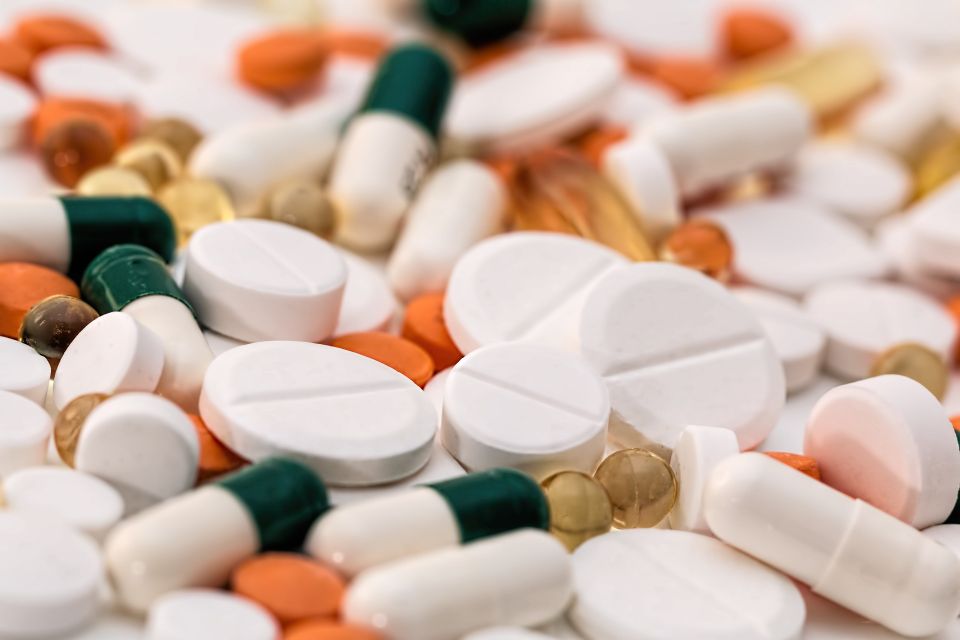Drugs that Deplete Nutrients
DRUGS THAT DEPLETE NUTRIENTS The use of prescription and over-the-counter drugs is extremely common in America and in most of the Western developed world. 4.25 Billion Prescriptions will be filled this year and with only 325.7 million people in the US that is 13 for every men, women and child in the US.PRESCRIPTION PAINKILLERS AND THE OPIOID CRISIS
- The US makes up 5 percent of the world’s population and consumes approximately 75 percent of the world’s prescription drugs.
- Prescription opioid drugs contribute to 40 percent of all US opioid overdose deaths.
- Approximately 130 people died each day from overdoses involving prescription opioids.
- Prescription opioid overdose rates are highest among people ages 25 to 54 years.
- Overdose rates were higher among non-Hispanic whites and American Indians or Alaskan Natives.
- Men are more likely to die from prescription opioid overdose, but the gap between men and women is decreasing.
- Because of its cheaper price, heroin has become the drug of choice for many who are addicted to opioid pain relievers. Approximately three out of four new heroin users misused prescription opioids prior to using heroin.
- More than half (53 percent) of prescription opioid users got their last painkillers from a friend or relative, with 40.4 percent paying nothing for the pills.
Laxatives are associated with depletion of the following nutrients:
- Vitamin A
- Vitamin D
- Vitamin E
- Calcium
Antibiotics are associated with depletion of the following nutrients:
- Vitamin B1
- Vitamin B2
- Biotin
- Pantothenic Acid
- Vitamin C
- Vitamin E
- Vitamin K
- Potassium
- Magnesium
- Zinc
Cholesterol-lowering drugs, such as Cholestyramine, Colestipol, Questran, Colestid and Atromid-S, are associated with depletion of the following:
- Vitamin A
- Vitamin B12
- Beta-Carotene
- Folic Acid
- Vitamin D
- Vitamin E
- Vitamin K
- Iron
Colchicine, used to treat gout, is associated with depletion of the following:
- Vitamin A
- Vitamin D
- Vitamin B12
- Folic Acid
- Iron
Prednisone and related steroid drugs are associated with depletion of the following nutrients:
- Folic Acid
- Vitamin D
- Zinc
- Magnesium
- Vitamin C
- Calcium
Nonsteroidal anti-inflammatory drugs (NSAIDs), including aspirin, are associated with depletion of the following nutrients:
- Folic Acid
- Vitamin C
- Vitamin K
- Iron
Antacid drugs are associated with depletion of the following nutrients:
- Vitamin A
- Vitamin B1
- Folic Acid
- Vitamin B12
- Chromium
- Iron
Oral contraceptive drugs are associated with depletion of the following:
- Beta-Carotene
- Vitamin B1
- Vitamin B6
- Folic Acid
- Vitamin B12
- Biotin
- Pantothenic Acid
- Vitamin C
- Magnesium
- Zinc
Sedatives and barbiturates are associated with depletion of the following:
- Vitamin B2
- Vitamin C
- Vitamin D
- Folic Acid
- Vitamin B12
- Pantothenic Acid
Estrogen-replacement therapy is associated with depletion of the following:
- Vitamin B1
- Vitamin B2
- Folic Acid
- Vitamin B12
- Biotin
- Pantothenic Acid
- Vitamin C
- Magnesium
Many anti-depressants are associated with depletion of the following:
- Vitamin B2
- Vitamin B6
- Calcium
- Magnesium
- Coenzyme Q10
Amphetamine and amphetamine-containing drugs are associated with depletion of vitamin B1. Levodopa, used in the treatment of Parkinson’s disease, is associated with depletion of vitamin B6.Many anti-convulsant drugs are associated with depletion of the following:
- Folic Acid
- Biotin
- Vitamin D
- Vitamin E
- Zinc
Digoxin (digitalis) is associated with depletion of vitamin B1. Indomethacin is also associated with depletion of B1.Diuretic drugs are associated with depletion of the following nutrients:
- Vitamin B1
- Calcium
- Potassium (Thiazide drugs especially)
- Magnesium
- Zinc
Angiotensin-converting enzyme inhibitor drugs, used for high blood pressure, are associated with depletion of zinc. Beta-blockers, also used in the treatment of high blood pressure, are associated with depletion of coenzyme Q10 (CoQ10). Statin drugs (e.g., Lipitor), used in treatment of high cholesterol, are associated with depletion of coenzyme Q10. CoQ10 is very important for heart and brain function.Resources:Bowman L. “51% of U.S. Adults Take 2 Pills or More a Day, Survey Reports.” (Scripps Howard News Service). San Diego Union-Tribune, Jan. 17, 2001:A8 Pressman AH. Clinical Assessment of Nutritional Status: A Working Manual. Management Enterprises, 1982. American Journal of Clinical Nutrition. January 1991;53 (Suppl 1). Reavley N. New Encyclopedia of Vitamins, Minerals, Supplements and Herbs. New York: M. Evans & Co. Inc., 1998 Drugs That Deplete – Nutrients That Heal: A review of Drug-Induced Nutrient Depletion Handbook, 1999-2000. Life Extension Magazine, July 2000. Langsjoen PH, Langsjoen AM. The clinical use of HMG CoA-reductase inhibitors and the associated depletion of coenzyme Q10: a review of animal and human publications. Biofactors, 2003;18(1-4):101-11. www.chiroweb.com


